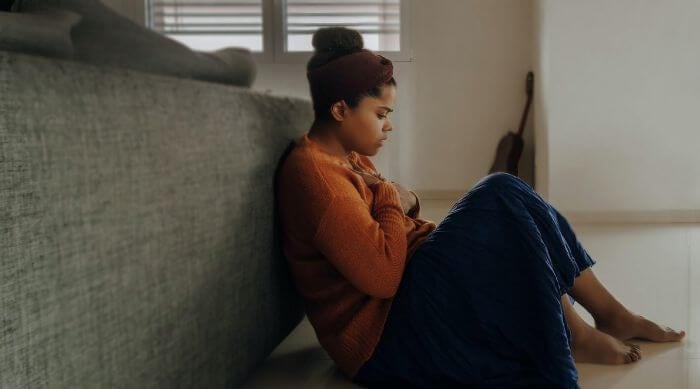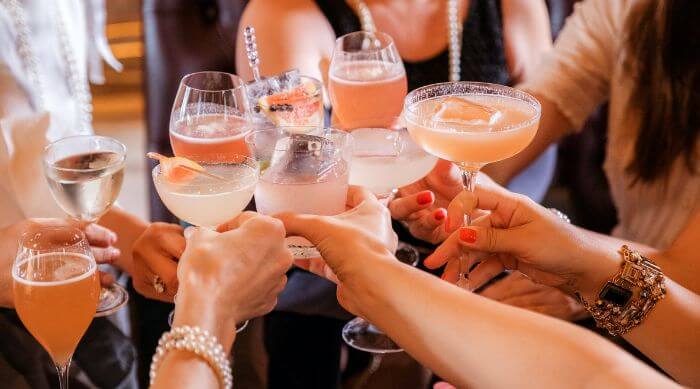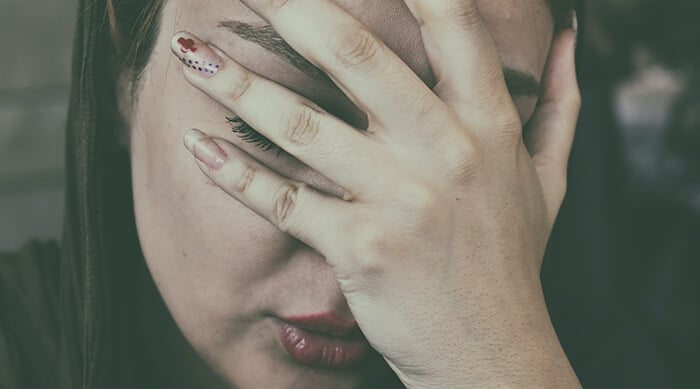It’s not your imagination: wine hangovers are the worst. If you’re extra sluggish the morning after a girls’ night, we’ve looked into the science to tell you why — and how to prevent that hangover in the future.
Table of Contents
What are the symptoms of a wine hangover?
Why is a wine hangover worse than other hangovers?
How to Deal With a Wine Hangover
What are the symptoms of a wine hangover?
Symptoms of a wine hangover will look different person-to-person, but may include:
- Headache
- Nausea
- Vomiting
- Diarrhea
- Dizziness
- Thirst
- Sensitivity to light, sound, or smells
- Malaise
- Trouble sleeping
- Irritability
Many of these are typical hangover symptoms, but they’re usually more intense after wine or dark liquor. Let’s take a look at why.
Why is a wine hangover worse than other hangovers?
Wine hangovers are worse than other hangovers because wine is full of:
- Tannins
- Tyramines
- Histamines
- Congeners
Tannins are what give wine its distinct flavor and mouthfeel. You probably know a little about them if you’ve been to a decent wine tasting. While tannins are actually pretty good for your brain, they do cause serotonin spikes, which can lead to headaches for some people.
Tyramines are monoamines and require a chemical in your body called monoamine oxidase, or MAO, to break down. If you don’t have enough MAO in your system to handle the tyramines you’ve taken, they can raise your blood pressure and trigger migraines.
Histamine is the chemical compound our bodies need for immunoresponse. Too much histamine is responsible for most common allergic reactions — headaches, itching, and that gross, lethargic feeling when you’re getting sick.
Congeners are a little trickier. These are chemical byproducts of fermentation, and they show up in high concentrations in red wine and dark liquors like whiskey, rum, and brandy. Most clear liquids don’t have as many congeners — except tequila. Tequila is full of congeners too.
Congeners contribute to a longer hangover because it takes a while for your body to break them down. That means your body has to work longer to process the ethanol that came in with the congeners.
If you have an allergy or sensitivity to sulfites, they may also cause headaches, but these generally aren’t the biggest culprit.
In rare cases, feeling extra rough after a glass of wine can be related to a wine allergy, although the reaction is usually to one of the components in wine rather than the wine itself.
Some physiological factors come into play when it comes to metabolizing alcohol, including:
- Age
- Sex
- Race
- Diet
- Alcoholism
Mistakes to Avoid
Many of us have heard — and believed — some truly awful hangover advice. If you’re hungover and looking for a cure, please do not try the following methods.
1. Medicine before bed. Inexperienced drinkers may be tempted to take ibuprofen with water before bed and assume the medicine will have worked its magic by morning. But you probably know better than that. Most OTC medications only last 4-6 hours, so the odds are you’ll sleep through the medication’s full duration.
Not only will this just not work, but it may trigger the release of more stomach acid. More stomach acid will further disrupt your alcohol processing time and lead to more tummy trouble the next day.
2. Hair of the dog. This is a myth from start to finish. While a drink in the morning might dull the immediate hungover feeling, it actually prolongs all the processes that cause a hangover. It not only delays the inevitable but adds to it.
The hair of the dog idea is also reasonably dangerous because it promotes alcohol dependence.
3. Greasy food. Another gem of conventional wisdom is popular among frat boys. Since your stomach is already lined with alcohol, a high-fat, leftover pizza or biscuits-and-gravy-type meal can lead to further irritation — and some frankly weird bathroom situations. Skip the morning burger and read on for what to eat instead.
4. Coffee. Ok, you don’t have to avoid coffee. If you’re a regular coffee drinker and rely on your morning cup, go for it! Just don’t expect it to cure your hangover. Caffeine may help fight fatigue but won’t alleviate any other symptoms.
If you don’t typically drink coffee, however, and your body isn’t adjusted to its diuretic effects, it might actually dehydrate you further.
How to Deal With a Wine Hangover
Getting over a bad hangover can seem impossible in the moment — especially if you’ve been relying on “quick cures.” The harsh truth is, it takes about 24 hours for your body to get back to normal.
In the meantime, here are some ways to cope with symptoms.
1. Sleep it off. Sleep is your best friend during a hangover. Get at least 8 hours in and let your body do the work.
2. Drink plenty of water. And we don’t mean just have a glass of water. We all know the recommended 64 oz day rule. If you’re hungover, shoot for that, and maybe add a little to give your liver a hand.
3. Get some electrolytes. Sports drinks and broth are excellent sources of the salt and potassium your body needs after a few alcoholic drinks. Next time you buy a bottle of wine, maybe grab your favorite electrolyte source, at the same time, just in case.
4. Eat bland food. Even if you’re feeling nauseated, it’s important to eat something. We said to avoid the greasy food cure. Instead, opt for bland, easy-to-digest carbs like toast, crackers, oatmeal, or that broth we mentioned. This helps stabilize your blood sugar and prevent crashes.
5. Try the right pain reliever. Pain relievers containing acetaminophen (like Tylenol) can harm your liver if taken with alcohol. If you have a headache, try an NSAID like aspirin or ibuprofen.
Ways to Prevent a Hangover Next Time
If you want to enjoy wine — or any alcoholic beverage — without suffering the following day, try these safe drinking practices:
1. Eat before you drink. Eating first will not only coat your stomach to prevent some potential acid reflux from wine. It will also fill you up — so you won’t drink to satisfy hunger or make poor food choices once the wine has kicked in.
2. Drink water. Like the above principle, if you hydrate with water between glasses of wine, it will be easier to monitor your alcohol intake.
3. Savor, don’t shoot. Ok, you’re a wine drinker. You’re not here because you’re doing shots. Still, don’t drink too quickly. Honor the winemakers responsible by savoring that glass. You don’t have to be a sommelier to appreciate subtle hints of flavor, but you do need to slow down. This will make the wine more enjoyable and lower your odds of a terrible hangover.
What is a good wine to drink to avoid a wine hangover? To avoid a wine hangover, drink small amounts of white wine or rosé. The best way to prevent a hangover entirely is to drink non-alcoholic wine. Drinking in moderation is best practice if you want to drink alcohol safely.
The Only Way to Guarantee No Hangover: Non-Alcoholic Wine
Non-alcoholic wine is the only airtight hangover prevention. We don’t mean sparkling grape juice. What is this, the 6th grade? No.
Surely makes wine and then removes the alcohol. That means real wine without any of the side effects. Looking for a pinot noir without the headache? We’ve got you covered! Feel more like a sparkling rosé? No problem. If you’re unsure what you want, check out our Wine Quiz!
Sources
- Putative Roles of Plant-Derived Tannins in Neurodegenerative and Neuropsychiatry Disorders: An Updated Review
- Mechanisms of the antilipolytic response of human adipocytes to tyramine, a trace amine present in food
- Role of Histamine in Modulating the Immune Response and Inflammation
- Alcohol congener analysis and the source of alcohol: a review
- ALCOHOL METABOLISM
- Hangover and Risk for Alcohol Use Disorders: Existing Evidence and Potential Mechanisms
- Water Intake, Water Balance, and the Elusive Daily Water Requirement
- Hangover Treatment



![Cure Your Wine Hangover [Plus Prevention Guide]](https://dropinblog.net/34240221/files/featured/wine-hangover.jpg)


